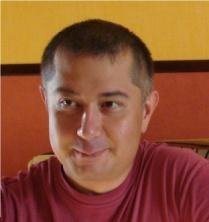17-20 September 2014, St. Petersburg is hosting the 1st International Scientific Conference “Science of the Future”, organized by the Ministry of Education and Science of the Russian Federation. The conference will serve as a platform for information exchange for the scientific community, the development of international cooperation, and integration of Russia into the world scientific environment.
The conference will highlight the experience and results of scientific research carried out in research laboratories created under the mega grants of the Russian Government.
The representatives of all four flows of Russian mega grants and experts from 15 countries will take part in the conference, including 3 Nobel Prize winners and a Fields Medal holder.
 Kazan Federal University will be represented by the members of the International Russian-French Associated Laboratory for Neurobiology of Development (Kazan Federal University, Institut National de la Santé et de la Recherche Médicale) supervised by Rustem Khazipov, PhD in Medicine, Head of Research Team of Mediterranean Institute of Neurobiology (INSERM-INMED U901, Marseille, France).
Kazan Federal University will be represented by the members of the International Russian-French Associated Laboratory for Neurobiology of Development (Kazan Federal University, Institut National de la Santé et de la Recherche Médicale) supervised by Rustem Khazipov, PhD in Medicine, Head of Research Team of Mediterranean Institute of Neurobiology (INSERM-INMED U901, Marseille, France).
Rustem Khazipov told us about the background of the conference. In 2010 by the order of President Putin, the program of the governmental support for scientific research run by Russian universities and research centres was developed. It aims at the development of word class fundamental and applied research in Russian universities and research centres; the program includes launching new laboratories, competitive with leading world labs and cooperating with world known experts, including our compatriots residing abroad.
- 160 labs have opened since 2010, they focus on various scientific areas, the researcher explained. For the first time in the last 4 years, the conference will gather major world scientists who head laboratories created within mega grants program to share the results of their work and introduce new projects.
According to Rusem Khazipov, the programof mega grants stimulated the growth of Russian science as well as attracted many young experts.
- The heads of mega grant labs do not come to the conference alone; they bring their labs' members. For instance, our laboratory delegation includes research associates and postgraduates who will present their results in poster reports at one of the 8 sessions of the conference.
The expert is sure that young scientists will not move away and continue their researches in new opened labs in Russia, where the scientific infrastructure has recently boosted.
- When we were launching the International Associated Laboratory for Neurology of Development, our key goal was to create a research team as well as to fit the lab with modern equipment. And it looks like we are very close to this goal now, as some of our scientists have won a number of grants of the Russian Foundation for Basic Research and some researches are run under individual grants in addition to mega grants.
In 2013 mega grants were extended for 2 years so that KFU could keep on developing neurobiology projects.
The backing of the mentioned projects by the Russian Government mounted to 50 million rubles per year for the first three years, then it grew twice less as by that moment the laboratory had already been equipped with high-tech devices and main expandable materials that cost the significant part of the grant.
- In our lab we study the development of central nervous system, Rustem Khazipov explained, -In particular, in many our researches we study early forms of cortex electrical activity that appear first in the individual development of an organism; mechanisms of early activity generation, and the importance of this activity for the development of a child's brain and adult activities. If we learn how a normal developing brain performs and what development disabilities cause pathologies, we'll provide adequate conditions for the development of premature infants' nervous system at the embryonic period.
The upcoming conference is a tool to update professional relations between Russian and international scientific communities.
- It is exciting to meet outstanding researchers, - the head of the research team said, –It is a welcome opportunity for the information exchange, building relationships and developing international cooperation that enables integration of Russia into the world scientific community.